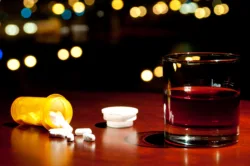Understanding the Disease of Addiction: It Is Treatable

While the disease of addiction is ultimately terminal, its progression can be arrested at almost any stage. It can seem hopeless at times; the disease may progress to what is a virtually uncontrollable and compulsive pattern of craving, seeking and using mood- or mind-altering substances that interfere with one’s ability function in normal society. The medical condition of addiction requires formal management for treatment to be successful.1
Addiction Is Treatable
Once you decide to pursue treatment, it is imperative that you seek the assistance of addiction professionals. Alcohol and some prescription medications are “acceptable” in a social setting. However, if someone abusing these substances were to stop using suddenly, withdrawal can cause death through seizures and coma. Understanding what addiction and withdrawal symptoms accompany each individual drug is pivotal at this stage of the treatment process. At times, misinformation can be spread, even by doctors who may be well-meaning but ultimately uneducated in treating addiction. These doctors might prescribe large amounts of unsuitable medications that can lead to cross-addiction.
If the treatment process is set to begin with detox, the process is best completed in a medically supported detox unit, which provides a 24-hour-care setting.2 This environment allows for close monitoring of the detox process and the ability to manage acute physical symptoms as they arise.
Statistics show that continued addiction treatment in a continuum of care goes a long way in helping people who are seeking sobriety to achieve long-term abstinence. Detox is just the first stage of recovery, and the patient should continue on and participate in therapy in a residential treatment setting.
Contributed by Mike Loy, Assistant Director of Needs Assessment
While the disease of addiction is ultimately terminal, its progression can be arrested at almost any stage. It can seem hopeless at times; the disease may progress to what is a virtually uncontrollable and compulsive pattern of craving, seeking and using mood- or mind-altering substances that interfere with one’s ability function in normal society. The medical condition of addiction requires formal management for treatment to be successful.1
Addiction Is Treatable
Once you decide to pursue treatment, it is imperative that you seek the assistance of addiction professionals. Alcohol and some prescription medications are “acceptable” in a social setting. However, if someone abusing these substances were to stop using suddenly, withdrawal can cause death through seizures and coma. Understanding what addiction and withdrawal symptoms accompany each individual drug is pivotal at this stage of the treatment process. At times, misinformation can be spread, even by doctors who may be well-meaning but ultimately uneducated in treating addiction. These doctors might prescribe large amounts of unsuitable medications that can lead to cross-addiction.
If the treatment process is set to begin with detox, the process is best completed in a medically supported detox unit, which provides a 24-hour-care setting.2 This environment allows for close monitoring of the detox process and the ability to manage acute physical symptoms as they arise.
Statistics show that continued addiction treatment in a continuum of care goes a long way in helping people who are seeking sobriety to achieve long-term abstinence. Detox is just the first stage of recovery, and the patient should continue on and participate in therapy in a residential treatment setting.
Contributed by Mike Loy, Assistant Director of Needs Assessment







